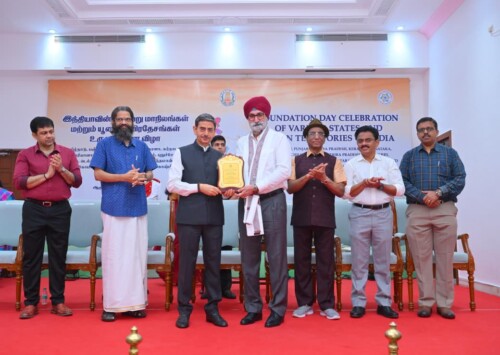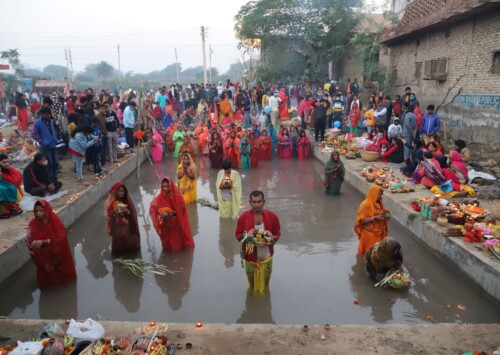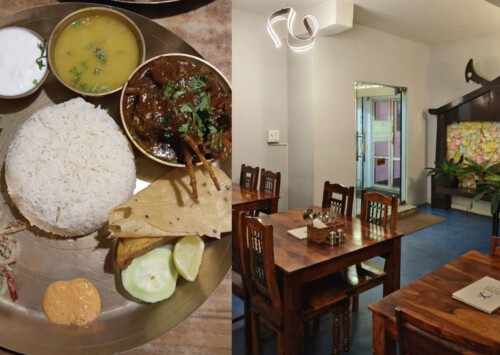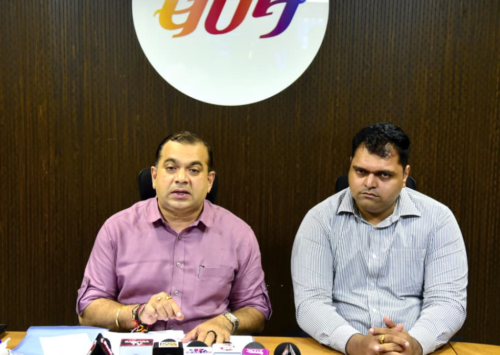From street vendors to floating shops: Patuli’s unique market
Creative solution to urban congestion

The boats are stationary and do not move like the traditional shikaras in Srinagar; instead, they are docked in place and function like fixed stalls on water ((Photo: Floating Market Patuli Facebook))
Kolkata’s Patuli floating market, India’s first permanent floating market, stands apart from traditional waterborne bazaars. Unlike the historic charm of Srinagar’s Dal Lake, this market was born from urban planning, an inventive makeover of a neglected canal into a vibrant commercial space.

The boats are stationary and do not move like the traditional shikaras in Srinagar; instead, they are docked in place and function like fixed stalls on water ((Photo: Floating Market Patuli Facebook))
When most people think of floating markets in India, their minds drift to the serene waters of Dal Lake in Srinagar, where slender wooden boats glide silently at dawn, selling fresh flowers, vegetables, and traditional crafts. These postcard scenes, steeped in history and local culture, have come to define the country’s concept of waterborne commerce.
However, nearly 2,000 km to the southeast, in the bustling city of Kolkata, lies a floating market with a very different story one rooted not in tradition, but in urban intervention.

Patuli Floating Market is a striking example of how civic bodies can reimagine underused urban infrastructure to serve multiple purposes, ranging from supporting informal economies, easing street congestion (Photo: Floating Market Patuli Facebook)
This market, located in the Patuli area in southern Kolkata, approximately 12 km from the city centre, holds the distinction of being India’s first permanent floating market created through city planning. Constructed on a long-neglected canal adjacent to the Eastern Metropolitan Bypass, the Patuli Floating Market is a striking example of how civic bodies can reimagine underused urban infrastructure to serve multiple purposes, ranging from supporting informal economies, easing street congestion and providing residents with an alternative shopping and recreational space.
The Origins: From congestion to canal commerce
The idea for the Patuli floating market was born out of necessity. Kolkata, like many other rapidly urbanising Indian cities, faces intense pressure on public spaces. Informal street vendors essential to the city’s food supply and economy often set up makeshift stalls along roadsides, pavements and marketplaces, contributing to chronic traffic snarls and safety issues. In areas like Garia and Patuli, street vending had become a flashpoint, with periodic eviction drives disrupting livelihoods and displacing hundreds of sellers.
Also Read: Serene Lakes of J&K: Where land meets water
In response, the Kolkata Metropolitan Development Authority (KMDA) conceptualised a novel solution in 2017 to relocate the vendors from the streets to a dedicated area built on a canal. Instead of constructing a conventional market complex, officials decided to transform the underutilised canal itself into a floating commercial hub. With a budget of INR 100 million KMDA developed what would become India’s first planned floating market. The project not only promised a cleaner, less congested urban landscape but also offered vendors a more permanent space to operate without the fear of eviction.
In its initial years, the market was a lively and vibrant space bustling with crowds, chatter, and the rhythm of daily trade. Many residents came here to purchase essentials like fruits and vegetables, while others stopped by tea stalls or fritter shops that operated from beautifully decorated boats. At its peak, Patuli even attracted visitors from across the city who were curious to witness this unique marketplace floating on water. The Patuli Canal, stretching approximately 500 metres, was cleaned, dredged and structurally reinforced. Wooden walkways were built along the banks for customer access, and a network of floating boats each designed to function as a small shop was introduced. These boats were anchored in fixed positions and covered with waterproof awnings, creating a neat and visually appealing floating arcade.

Patuli attracted visitors from across the city who were curious to witness this unique marketplace floating on water (Photo: Floating Market Patuli Facebook)
The Patuli Floating Market officially opened in January 2018, with space for over 100 boats. Each boat was assigned to a vendor, many of whom had previously operated from crowded pavements. The boats are stationary and do not move like the traditional shikaras in Srinagar; instead, they are docked in place and function like fixed stalls on water. The surrounding wooden pathways allow shoppers to walk from one boat to the next, creating the feel of a typical street market with a unique aquatic twist.
The goods on sale reflect the diversity of a traditional bazaar. Vendors sell fruits, vegetables, fish, meat, flowers, household items, garments, and a variety of street food, catering to the daily needs of local residents. The market was designed to accommodate about 200 vendors, each provided with a covered, uniformly built boat that ensures both protection from the elements and visual uniformity.
Lighting fixtures and decorative elements were added to enhance the ambiance, particularly in the evenings. Unlike Dal Lake’s organically evolved system of floating trade, the Patuli market represents a structured and engineered model, an urban solution tailored to a city’s specific problems.
Despite its innovative concept and early buzz, the Patuli floating market has faced several challenges over the years. One of the key issues has been maintenance. Like many water bodies in urban India, the canal is vulnerable to pollution, especially from plastic waste and algae build-up. Regular cleaning efforts are required to keep the water navigable and visually clean, but these have not always been consistent.

Each boat was assigned to a vendor, many of whom had previously operated from crowded pavements (Photo: Floating Market Patuli Facebook)
Additionally, footfall and visibility have remained limited compared to other mainstream markets in Kolkata. Because the floating market is not situated in a high-traffic commercial zone, many residents of the city remain unaware of its existence. Unlike Dal Lake, which draws both tourists and locals year-round, Patuli’s market caters mostly to nearby neighbourhoods. Attempts have been made to revive interest through local events, food festivals, and evening lighting, but the market has yet to become a major attraction.
The pandemic further impacted the market’s prospects. With mobility restrictions, reduced customer turnout, and economic uncertainty, many vendors struggled to earn enough to maintain their boat-shops. While the market has bounced back in recent years, its long-term viability remains closely tied to sustained municipal support and public interest.
Despite the hurdles, the Patuli floating market remains a symbol of creative urban planning. At a time when Indian cities are grappling with issues of overcrowding, unregulated street vending, and deteriorating public spaces, the market stands as a case study in adaptive reuse. It demonstrates how underutilised or neglected infrastructure like drainage canals or water tanks can be transformed into community assets with minimal ecological disruption.









